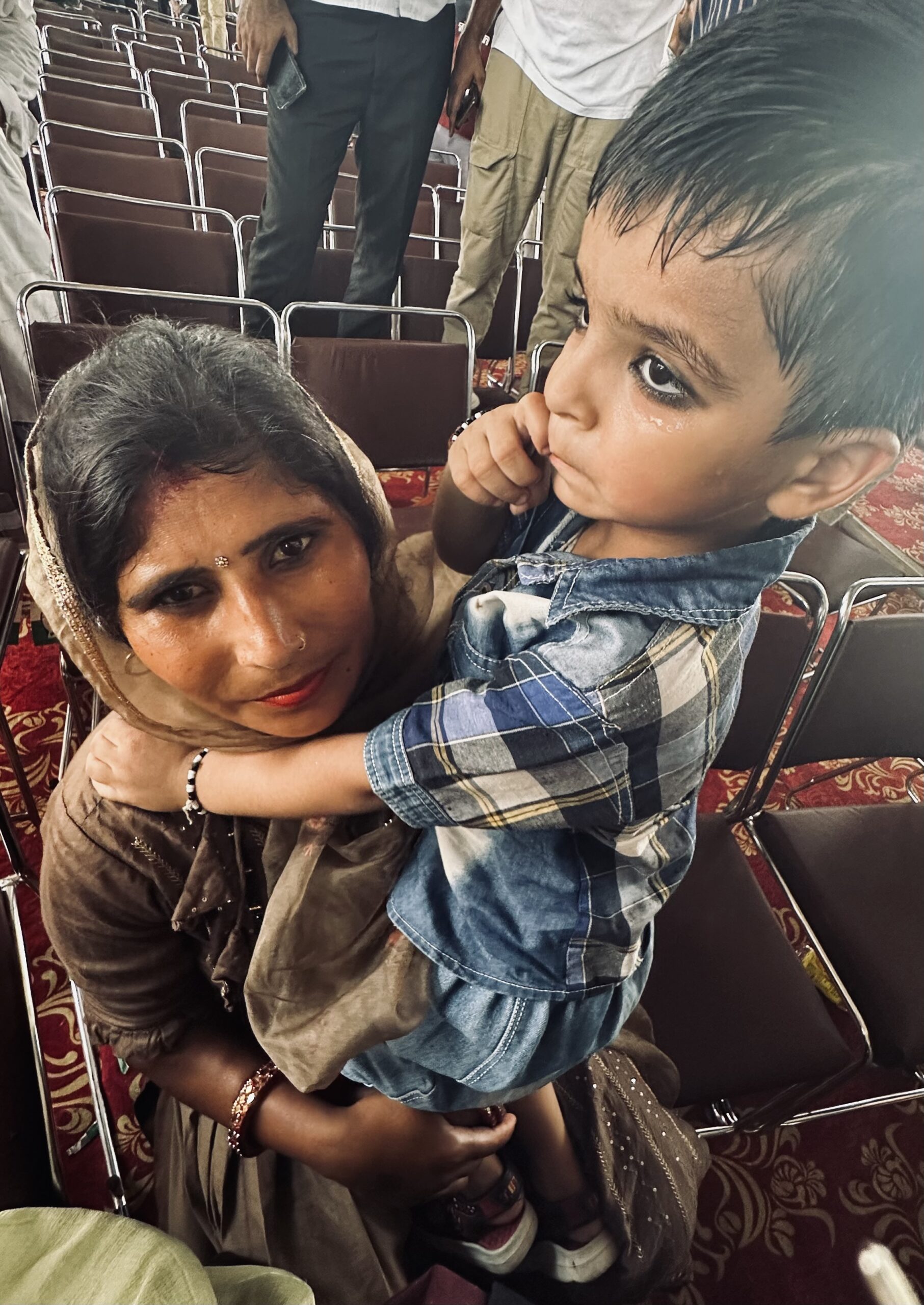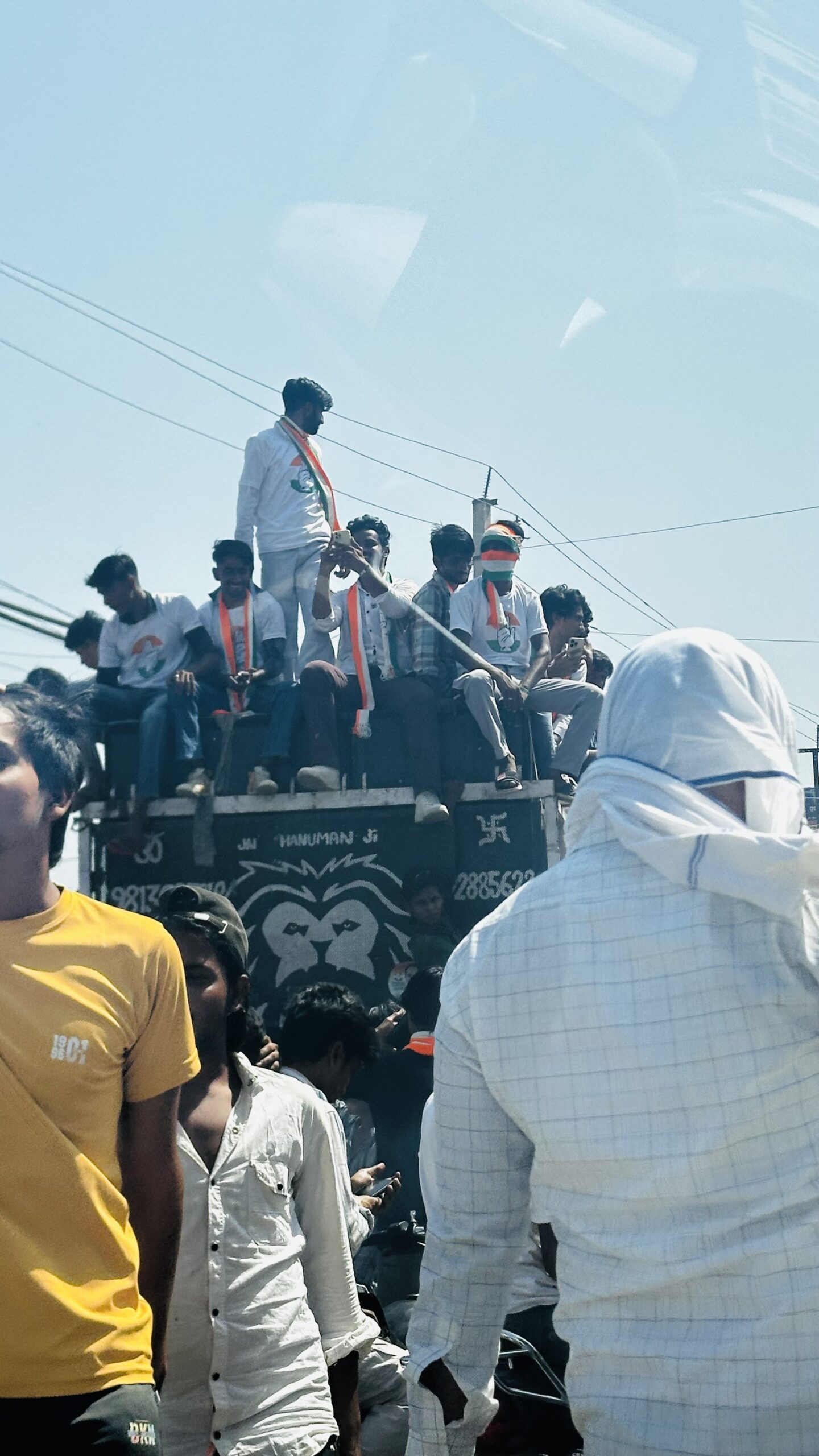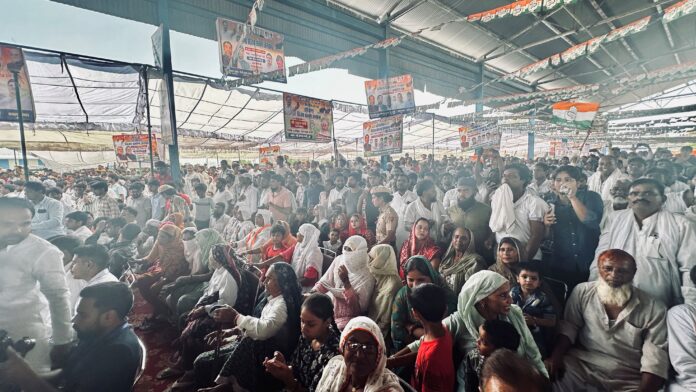Musheera Ashraf, TwoCircles.net
Nuh, Haryana: Amidst the sweltering 36-degree heat and towering buildings, the Nuh highway resonated with the pulsating beats of DJs and booming music. Flags waved exuberantly as tractors and mini trucks paraded toward the venue, where eager supporters awaited Rahul Gandhi’s arrival.
Gandhi was in Nuh to address a public meeting in support of party candidate and sitting MLA Aftab Ahmed, who is set to face off against Tahir Hussain of the Indian National Lok Dal (INLD), Rabia Kidwai of the Aam Aadmi Party (AAP) and Sanjay Singh of the Bharatiya Janata Party (BJP). He also extended his support to Chaudhry Ilyas from Punahna and Mamman Khan from Ferozpur Jhirka.
A significant number of children, many under the age of 18, cheered joyfully, waving flags with fervor. “Rahul Gandhi aa raha hai (Rahul Gandhi is coming)!” exclaimed 12-year-old Monis, holding a flag almost as tall as he was.
While the tents overflowed with attendees, a notable absence of women was apparent in the sea of faces. The left side of the first three rows was only half-filled with women, while the crowd remained predominantly composed of bearded Muslim men, with the few women present seemingly from non-Muslim communities.
The atmosphere ignited as Gandhi took the stage, the sound of firecrackers amplifying the crowd’s excitement. Seated beside him were Raj Babbar and other party workers.
As Gandhi began outlining his vision for Haryana’s development, his speech notably lacked promises aimed at empowering women. Despite the pivotal role women play in the state’s socio-economic landscape, critical issues that resonate with female voters went unaddressed.
“We will reduce the price of cylinders to Rs 500, provide 300 units of free electricity, implement the Mahila Suraksha Yojana and transfer money from the pockets of the rich to the poor,” he announced.
However, local women highlighted the pressing need for better and safer roads leading to schools. Aruna, a 40-year-old attendee, underscored their significance for improving enrollment and retention rates. While Gandhi mentioned the need for a university, he overlooked the urgent requirement for improved education systems for women in Haryana, particularly in Mewat, where high schools were conspicuously absent from his discourse.

Economic empowerment for women was another vital topic missing from his address. While he promised to fill Rs 2 lakh vacancies quickly, initiatives to promote women entrepreneurs and provide access to financial resources could have resonated deeply with the audience, particularly in rural areas where economic disparities are stark.
The absence of discussion surrounding healthcare access and services for women also raised concerns. “Our patients are referred to distant hospitals, even for severe fevers. The healthcare centers need to be better equipped and properly staffed,” lamented Saleem, a local resident of Ferozpur Jhirka.

Among the few women in the crowd was Rajvati, drenched in sweat and carrying her 2-year-old son. “I believe in him; he will fulfill all his promises,” she said with a smile. Another woman, Sharmeela, shared her delight at seeing Gandhi, confident that he is a man of his word who will deliver on his commitments.
As the Gandhi scion waved a pocket-sized version of the Constitution, the crowd erupted in joy. He declared that the politics of hatred would be replaced with love once the Congress came to power, cautioning the audience that if the BJP wins, they will strip the nation of its resources. He accused the BJP and RSS of attempting to eliminate the Constitution.
Referring to the current government as one of “crorepatis” (millionaire), Gandhi vowed to create employment opportunities in the region and remove Haryana from the list of states with the highest unemployment rates.
In Mewat, the absence of women in leadership positions within local governance structures hinders their influence on decision-making processes and advocacy for crucial issues such as health, education and security.


